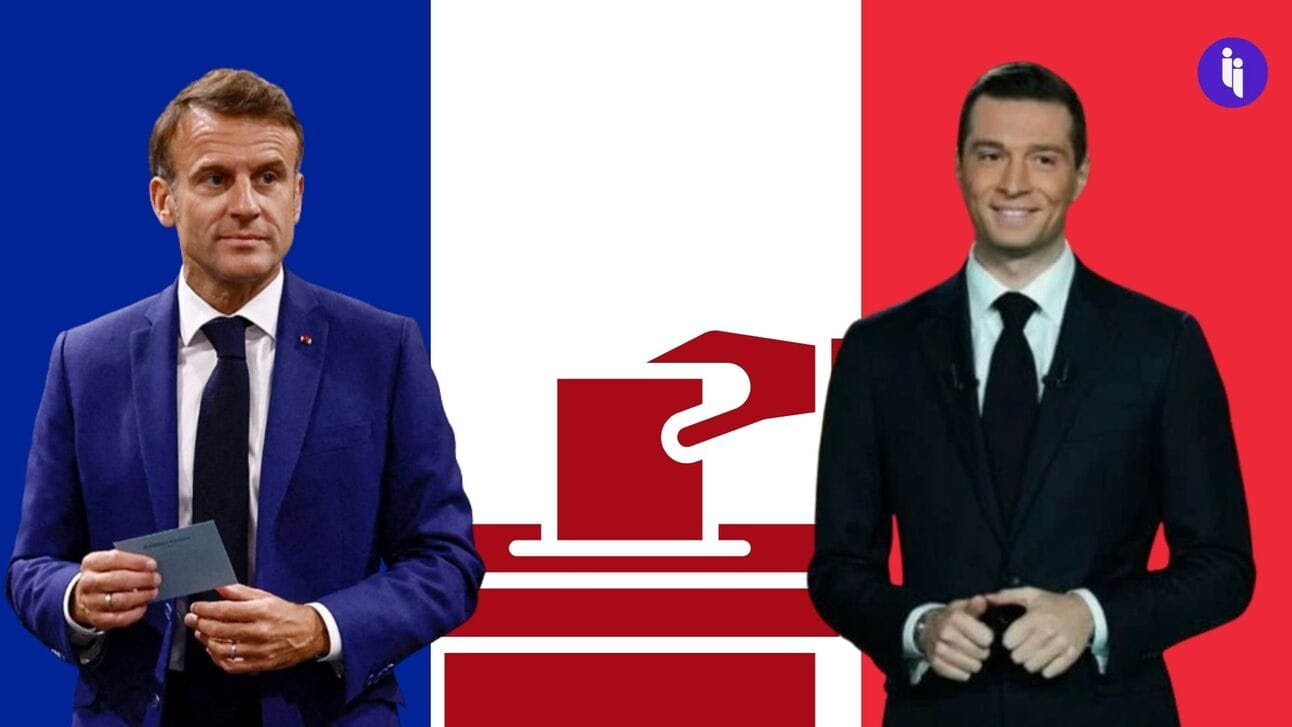Last month, we wrote that French President Emmanuel Macron was taking a gamble after the European Parliament elections by calling a snap election at home. Well, the results are in and they don’t look good for his party.
Yesterday (Sunday), French voters cast their ballots for the 577-seat National Assembly. Macron’s party came in third place with ~21% of the vote behind the newly-formed left-wing alliance, ‘Nouveau Front Populaire’ (~28%) and Marine Le Pen’s far-right ‘National Rally’ (RN) party (~33%).
While no party achieved an outright majority to save voters from returning to the polls during prime summer vacay time on 7 July, RN led the pack and inched closer to securing a legislative majority.
Stay on top of your world from inside your inbox.
Subscribe for free today and receive way much more insights.
Trusted by 114,000+ subscribers
No spam. No noise. Unsubscribe any time.
If RN goes on to win, Le Pen’s 28-year-old protege (and TikTok darling) Jordan Bardella would likely become France’s next prime minister. According to Le Pen, the results were “an unambiguous vote that shows the French people’s willingness to turn the page on seven years of a government that treated them with disdain”.
So what does this mean for Macron?
Macron will remain president until his term expires in 2027, and has said he would not step down before then.
So, a power balance shift in the legislative body would mean that Macron will be forced to appoint and work with a prime minister from a party he’s not aligned with, which is otherwise known as ‘cohabitation’.
Now, Macron a) is looking politically isolated domestically, b) will potentially serve the remainder of his presidency with a prime minister who disagrees with his policies, and c) has reportedly been asked by his allies to lay low before the second round of voting. Ooft.
What does this mean for France?
The final outcome of these elections could be big for France.
First, the country has only experienced three cohabitations since 1958. These periods tend to be characterised by political tensions, with the prime minister playing a bigger role in French domestic politics and the president nominally leading on foreign and military policies.
Secondly, an RN majority could usher in France’s first hard-right government since WWII. Le Pen has also successfully capitalised on voter anger at Macron, pinning his party on issues like high cost of living and immigration concerns.
What does this mean for Europe and the world?
During his presidency, Macron emerged as the de facto leader for a united Europe. A weakened Macron at home could mean a more inward-focused France for Europe, NATO, and globally.
On Ukraine in particular, Macron has consistently championed military aid for Kyiv and even refused to exclude putting French troops on the ground. That’s likely to change if RN’s Bardella becomes prime minister. The French President is also an advocate for Ukraine’s EU and NATO accession, both of which RN leaders oppose.
France’s role in NATO is also up for discussion. RN has previously advocated to remove France from the alliance’s integrated military command (although Bardella has since moderated his stance, pledging to respect NATO’s budget for 2024-30).
US Secretary of State Henry Kissinger once asked, “Who do I call when I want to call Europe?“. For a while, Macron was the go-to guy for many – especially the US. But if the parliamentary election on 7 July results in a decisive victory for Le Pen’s RN party, the Élysée Palace call log might just quieten down.
INTRIGUE’S TAKE
Why risk a snap election right after an electoral defeat in the European Parliament? Macron likely hedged that a French vote would yield more favourable results considering that EU elections have traditionally seen more experimental results than domestic elections.
Macron rode the wave of his pro-EU, centrist-liberal ‘En Marche’ party to power in 2016. But today, we’ve seen a decline in this brand of politics in France. RN’s eurosceptic, NATO-hesitant, and anti-immigration stance is hardly alone in Europe. In Germany, the ‘Alternative For Deutschland’ party (deemed too extreme even for RN), has seen a surge in membership after gaining ground in the EU elections.
There will be plenty of politicking in the lead-up to the second round of voting, and as we’ve learned from elections this year – expect plot twists. Centrist and left-leaning parties are now cooperating in an attempt to consolidate the anti-RN vote and block Le Pen’s party from achieving a majority in parliament.
Either way, France’s image as the European leader and solid international partner has likely been dented. Good thing the Paris Olympics are around the corner to distract from all that.
Also worth noting:
- France’s three cohabitations since 1958 were between 1986-88, 1993-95, and 1997-2002.
- France’s interior ministry said that the participation rate in Sunday’s legislative elections was 59.39%, up significantly from 39% in 2022.
- French President Charles de Gaulle removed France from NATO’s integrated military command structure in 1966. Paris rejoined the system only in 2009.








